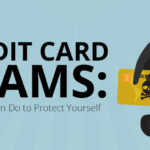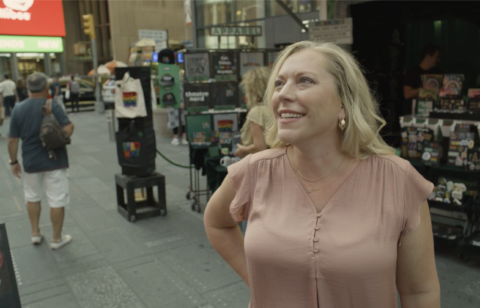In practically every situation, maxing out your credit card is a bad idea. While it might be tempting to spend your available credit to live a lifestyle you otherwise couldn’t afford, the financial repercussions are serious. Doing so could damage your credit score, limit your financial options, and might propel you into a perpetual cycle of debt.
As with just about anything though, it depends on the context. There are some situations in which maxing out your credit card is understandable or even preferable to the alternatives. To understand when hitting your credit limit is okay, you should first understand the potential consequences.
Is it bad to max out a credit card?
It can be harder than you might think to grasp the dangers of maxing out your credit card. While doing so comes with plenty of risks, some of them might not be immediately apparent. Here are four of the most serious consequences to keep in mind.
1. It will cost you a lot of money in the end
If you’re like most people, the most expensive aspect of spending with credit cards isn’t paying back what you spent; it’s paying off the interest when you can’t cover the balance in full. Interest can compound monthly or even daily, and unless you are aggressive about paying off your balances, it can get away from you quickly.
This is especially true if you are considering reaching the limit on your credit card. The amount of interest that compounds on your account is a function of the size of your balance. In other words, the more you owe, the more you will pay in interest. When you max out your card, the credit card company has the ability to charge high interest on your debt. They make a nice little profit while you dive deeper into the red.
With every interest charge calculated, your chances of paying off your credit card anytime soon become more and more remote. Your balance grows, and your next interest payment is calculated based on the new higher amount. This makes it even more challenging to pay your bills.
If you are only able to make the minimum payment (which has probably gone up since you maxed out your card), things will quickly deteriorate. Say you have a card with a $5,000 balance and a 20% APR. With a minimum payment requirement of 3%, it will take you over 18 years to pay off that card by making just the minimum payments. In the end, this will cost you far more than the original $5,000 purchase.
In simple terms, financing a big purchase by hitting your credit card limit is the most expensive way to shop. You will probably spend a lot more money than you intended and struggle with debt payments for months (or even years) just to get your financial situation back on track.
2. It makes you more financially unstable
If you hit your credit limit, that financial cushion goes right out the window. You no longer have access to a decent amount of credit in case of an emergency (or even if you need a little help to make ends meet). Instead, you have an expensive debt that needs attention every month just to keep it from spiraling out of control. Your credit card has transformed from a useful tool into a liability.
Moderation is crucial if you are trying to get the most out of your credit cards. But maxing out your card makes this an impossible task.
3. You could face a penalty
While creditors want you to use your cards, maxing one out is a red flag. It’s a sign that you are in financial straits and have become a risky borrower. To minimize their risk, they might penalize you.
In some cases, they might hit you with a penalty APR. This is especially likely if your maxed out card leads to other issues, such as late payments. Penalty APRs are the highest interest rates creditors can charge. You could see your interest rate jump overnight to as high as 29.99%. This increase will make it even harder to make any considerable progress toward paying off your debts.
In other cases, a creditor might simply close your account. This is worse than facing a penalty APR because it eliminates your ability to use your card, converting it into nothing but debt. Suddenly, your card becomes expensive dead weight. While it is possible to get your card reinstated, it is no fun dealing with the repercussions while closing it.
People Also Read
When is it okay to max out your credit card?
It’s almost never okay to max out your credit card. In most cases, doing so is setting yourself up for financial disaster. That said, there are some situations where it is understandable and often unavoidable.
You are dealing with an emergency
Most people carry a credit card designated for emergency use only. Having one is a smart move for anyone with a limited income. Unexpected events are expensive, strike without warning, and usually require a swift response. If you don’t have enough money in your checking or savings account to finance the emergency, turning to your credit card is often your next best move, even if you must max it out.
Imagine you are taking a road trip, and you are in the middle of nowhere when your car breaks down. You call for a tow truck and end up at a local repair shop that wants to charge $3,000 more than you have on hand. Turning to your credit card makes perfect sense here since you don’t have many other options. But be sure to pay off the debt as soon as possible.
Medical emergencies are also an acceptable reason to max out your credit card. From ambulance rides to emergency room visits, medical bills can pile up fast. But your life, health, and well-being are far more important than keeping your financial health pristine. So, if you are forced to max out your credit card to get the treatment you need, don’t feel guilty. Your health comes first.
You can’t make ends meet without it
Imagine that you lose your job. Suddenly, your life is in turmoil. Even if you qualify for unemployment, your income has taken a hit. Just paying your bills will become a struggle, and getting to the end of the month might seem impossible.
In this circumstance, it might be acceptable to spend more on your credit card than you usually would. You will have to make this call on your own, however. Obviously, financing your day-to-day life on a credit card is not a sustainable practice since you will end up paying more for everything you buy. If you think you will be able to land a new job soon, it might be worth stretching the funds you have and holding out for that next paycheck.
It always pays to keep some cash reserves in a savings account, and setting up an emergency account is key. There are certain things you might need cash for, such as putting down a security deposit on a new apartment. If you spend all your cash before you turn to credit, you might inadvertently limit your options. Cash simply provides a level of financial security and peace of mind that credit can’t.
Of course, it’s important that you only max out your credit card for legitimate reasons. You might be tempted to swipe your credit card instead of paying cash to avoid the stress of watching your bank account decline. Make sure you think long and hard about your situation and your financial options before you opt to swipe that credit card.
You are transferring your balance to a 0% interest card
Balance transfers can be enormously helpful if you are struggling with debt. They are essentially a form of debt consolidation in which you transfer the balances of multiple credit cards over to a single card. The new card should have a low promotional interest rate or charge no interest at all for a significant period.
Balance transfer cards enable you to pay off your debts faster without worrying about compounding interest undermining your efforts. Ideally, you could consolidate all your credit cards into a single monthly payment and pay off the entire balance before the promotional interest rate ends.
If you have a significant amount of credit card debt, you might end up maxing out your new card when you transfer your balances. This might not look great to the credit scoring agencies, as all they will see is you opening a new account and immediately hitting your credit limit. However, if the balance transfer contributes to your long-term financial health, it is well worth it.
While the negative side of credit cards has been covered, they do have their benefits. They provide a reserve of capital that is easy to access in case of an emergency. But even if you think you have a good reason to max out a card, take the time to examine the pros and cons and ask yourself if it’s worth it.









